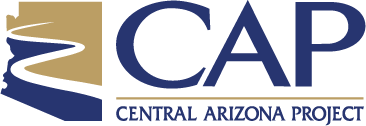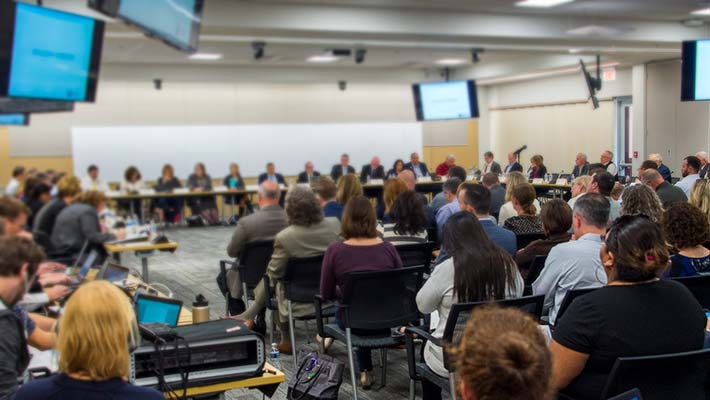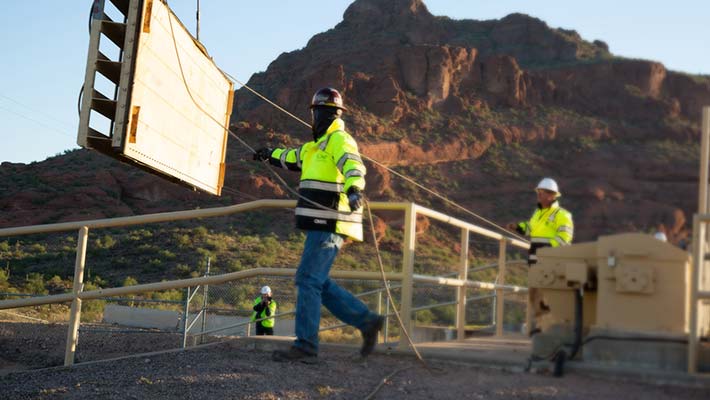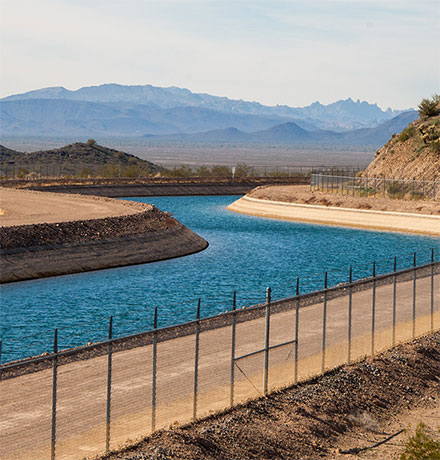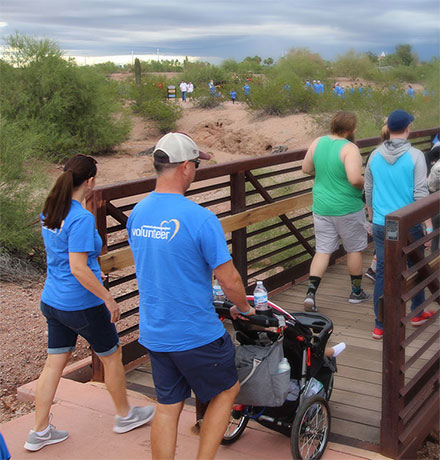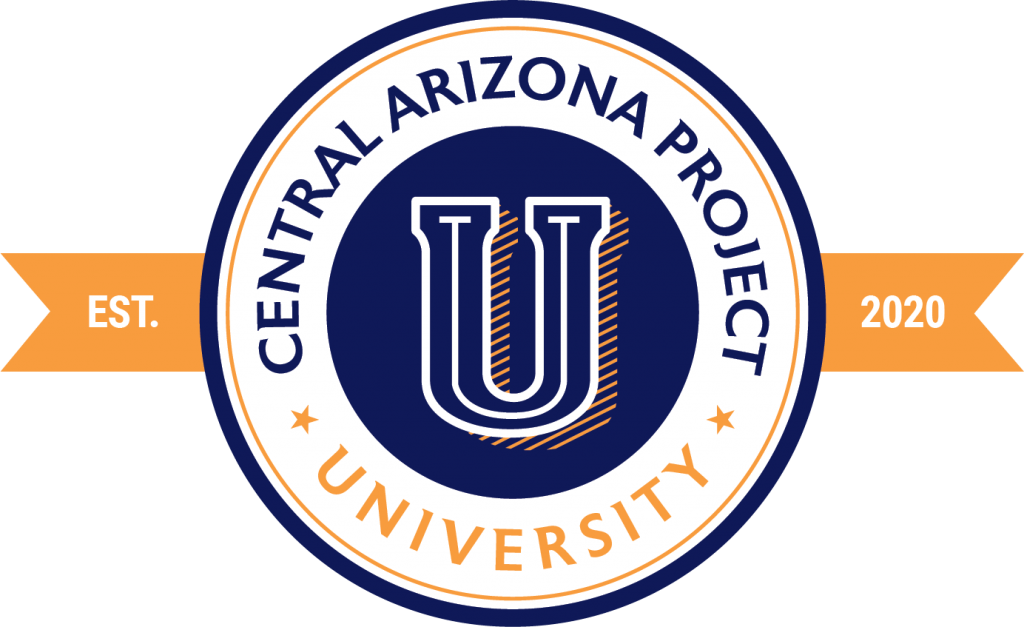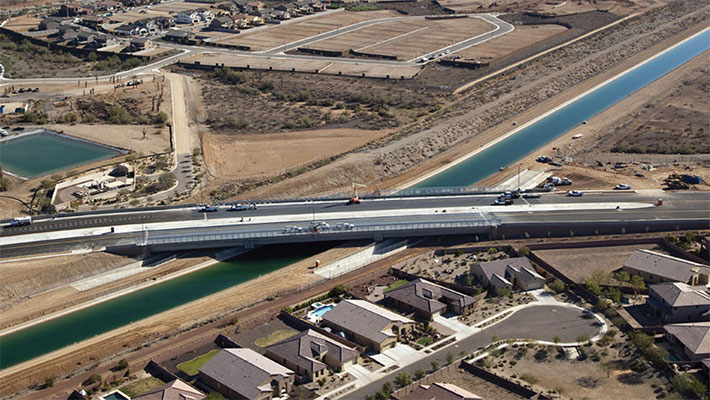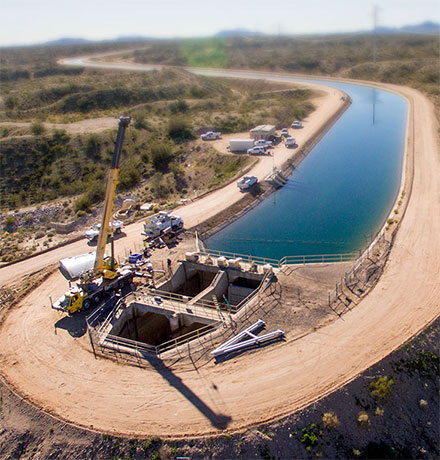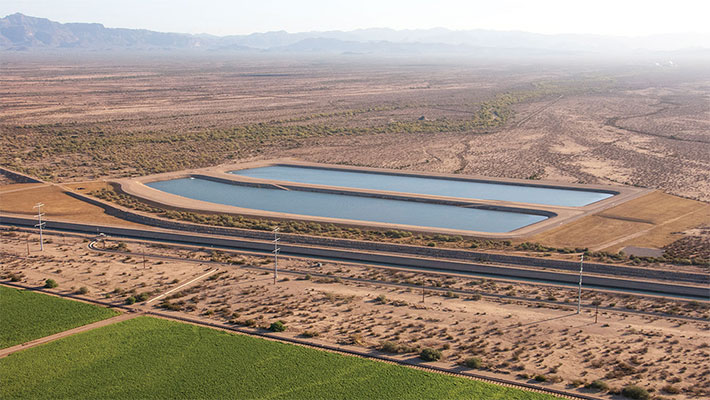- Water
- /
- CAP System
- /
- Water Operations
- /
- Biology
- /
- Quagga Mussels
Quaggas
What is a Quagga Mussel?
A quagga mussel (Dreissena bugensis) is a freshwater, bivalve mollusk that has invaded North American lakes and streams. The quagga mussel is relatively small (less than 1″), almost triangular in shape, and striped. The quagga is closely related to the zebra mussel, which has caused significant problems in the Great Lakes Region.
Where did Quagga Mussels Come From?
Quagga mussels are native to the Dneiper River drainage of the Ukraine. They were first discovered in the United States in Lake Saint Clair, Michigan, in 1988 and are believed to have been introduced in 1986 through ballast water discharge from ocean-going ships. In 2007, quagga mussels were found in Lake Mead, perhaps introduced as “hitchhikers” on a recreational boat as early as 2002. Since then, they have been found throughout the lower Colorado River (Lake Powell to Yuma) and in the CAP canal system, Lake Pleasant, and in parts of the SRP canal system.


Why are Quagga Mussels "In the News"?
Quagga mussels are a non-native species that can significantly alter the bodies of water they invade. They filter water at a remarkable rate, removing phytoplankton and zooplankton and thereby disrupting the food web. The increased water clarity increases light penetration which causes a proliferation of aquatic vegetation. In addition, a single adult quagga mussel can produce up to one million larvae in a single year, which allows them to colonize rapidly on hard surfaces. These colonies can ruin boat motors and clog water intake structures, such as pipes and screens, thereby impacting pumping capabilities for power and water treatment plants. These invasive mussels have cost industries and businesses hundreds of millions of dollars annually in maintenance and damage repair.
What is the Status of Quagga Mussels in the CAP?
Since first being found in the CAP in 2007, CAP has been monitoring the abundance and distribution of veligers (larvae) and adults in the canal and at our pumping plants. The CAP pumping plant at Lake Havasu (Mark Wilmer Pumping Plant) continues to see heavy infestation, but the quaggas have not affected our system reliability. Although internal components sometimes require more frequent cleaning, our maintenance crews have stayed ahead of any problems. The extreme forces exerted by our large pumps appear to damage the quagga mussels as water is pumped to the canal system, resulting in minimal settlement downstream of Lake Havasu to Lake Pleasant. In the southern portion of the CAP, quagga mussels have become established, but infestation at the pumping plants is relatively minimal.


What is CAP Doing to Address Quagga Mussels?
Unfortunately, there is no “magic” treatment that will eliminate quagga mussels from the CAP. The source of quagga mussels is Lake Havasu (Colorado River) and Lake Pleasant, so unless the mussels were extirpated from those two areas, the CAP will always be susceptible to infestation. Canal-wide treatment is impractical due to adverse impacts to the water, as well as the extremely high costs. Currently, the biggest threat to CAP reliability related to quagga mussels is within our cooling water systems (which are used to cool the pumps), so we are exploring various methods of treatment within those systems. In the meantime, we continue to monitor the distribution and abundance of quagga mussels throughout the CAP and increase maintenance activities when necessary. We also work with various Federal, State, and local agencies and quagga mussel experts to better understand the biology and habitat needs of the mussel, as well as to determine alternative methods of treatment.
What Can You Do To Help?
When a body of water becomes infested with quagga mussels, little can be done to eradicate the invasive species. Our best defense is to stop the mussels from further spreading. CAP and its contractors follow strict decontamination procedures to ensure that we don’t spread the mussels to uninfected waters. We hope that our customers and neighbors will do the same. Arizona law requires that plugs be removed from boats, and that boaters follow “Clean, Drain, and Dry” guidelines when using waters that are infected with quagga mussels. For more information about aquatic invasive species in Arizona and the law regarding decontamination of boats and equipment, visit the Arizona Game and Fish Department website.
